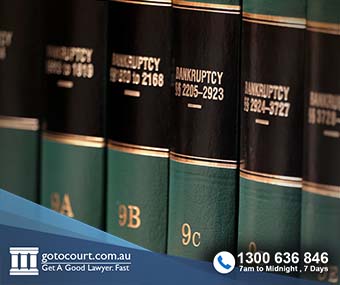Debt Recovery in Tasmania
Debt Recovery in Tasmania
Debt recovery claims are made when a party is owed money by another party and has been unsuccessful in obtaining payment through direct negotiations. Depending on the amount of money in dispute, debt recovery matters in Tasmania may be heard in the Minor Civil Division of the Magistrates Court, in the Civil Division of the Magistrates Court or in the Supreme Court. This page deals with debt recovery in Tasmania.
Legislation
The rules that govern debt recovery matters in Tasmania are set out in the Magistrates Court (Civil Division) Act, the Magistrates Court (Civil Division) Rules and the Supreme Court Civil Procedure Act and the Supreme Court Rules.
Legal action to recover a debt must generally be commenced within six years of the date when the debt arose. That time may be counted from when the debt was repayable, or from the date of a payment or of a default in repayments.
Letter of Demand
Before starting any legal action, parties should try to negotiate a settlement. If negotiation does not resolve the matter, the first step in debt recovery is to send a letter of demand to the party who owes the money.
The letter of demand should set out the details of the debt and advise the defendant of the date by which payment is required to avoid legal action. A letter of demand must not be designed to look like it is an official court document and must not harass or threaten the debtor. It should include all the details and attach supporting documentation such as copies of receipts and any previous correspondence.
If sending a letter of demand does not result in payment of the debt, the creditor may want to commence proceedings. The appropriate forum to do this depends on the amount of money owed.
The Minor Civil Division
The Minor Civil Division of the Magistrates Court is designed to deal with minor cases as cheaply and simply as possible. The maximum amount that can be sued for in this division is $5,000.
In the Minor Civil Division, parties cannot be represented by a lawyer unless they both agree, or the magistrate approves it. The magistrate cannot give this approval unless they are satisfied that the other party will not be disadvantaged.
Legal procedures in the Minor Civil Division are simpler than in the Civil Division, and all cases go through compulsory mediation.
If a matter goes to a hearing, the normal rules of procedure and evidence do not apply. Rather, the hearing will be held in the style of an inquiry with the magistrate asking questions of each party and any witnesses. The magistrate will then decide the case. There is no avenue of appeal from that decision.
The Magistrates Court
The Civil Division of the Magistrates Court deals with claims of between $5000 and $50,000. If the amount being claimed is more than $50,000 it can still be dealt with in the Magistrates Court if both parties agree.
After a claim is filed and served on the defendant, the defendant has 21 days to file a defence if they wish to dispute the claim. If the parties reach an agreement about the debt, they can sign a Consent Judgment, which can then be enforced if a party doesn’t comply with the agreement.
If a defence is filed, the matter will be set down for a Directions Hearing before a Magistrate, or a Conciliation Conference with a mediator. The magistrate or the mediator will see if the matter can be settled, and if it cannot, they will make directions for a hearing. At the hearing, the magistrate will make a final judgment. If either party is unhappy with the judgment they can appeal to the Supreme Court.
If a defence is not filed, the claimant may ask the court for a default judgment. After a judgment has been entered, the claimant can take enforcement action. Enforcement action is usually taken by issuing a Garnishee Order or a Warrant to Sell Property. A garnishee can be issued against wages or sums of money owed to the defendant. If a Warrant is issued, the bailiff can seize any property of the defendant other than necessities.
The Supreme Court
The Supreme Court deals with claims of over $50,000.
To commence a debt recovery matter in the Supreme Court, the creditor files and serves a writ on the debtor. Unless an Appearance or Counterclaim is lodged by the debtor within seven days, the creditor may ask for a default judgment and commence execution proceedings against the debtor.
Alternative Dispute Resolution
Alternative dispute resolution refers to various processes for resolving disputes outside of the court system. In debt recovery matters, the most commonly used form of alternative dispute resolution is mediation.
Mediation involves an impartial third party hearing from both parties and assisting the parties to come to a mutually acceptable resolution. If such a resolution cannot be reached, parties can resort to litigation through the court system.
If you require legal advice or representation in any legal matter, please contact Go To Court lawyers.

Affordable Lawyers
Our Go To Court Lawyers will assist you in all areas of law. We specialise in providing legal advice urgently – at the time when you need it most. If you need a lawyer right now, today, we can help you – no matter where you are in Australia.How It Works




1. You speak directly to a lawyer
When you call the Go To Court Legal Hotline, you will be connected directly to a lawyer, every time.

2. Get your legal situation assessed
We determine the best way forward in your legal matter, free of charge. If you want to go ahead and book a face-to-face appointment, we will connect you with a specialist in your local area.

3. We arrange everything as needed
If you want to go ahead and book a fact-to-face appointment, we will connect you with a specialist in your local area no matter where you are and even at very short notice.












